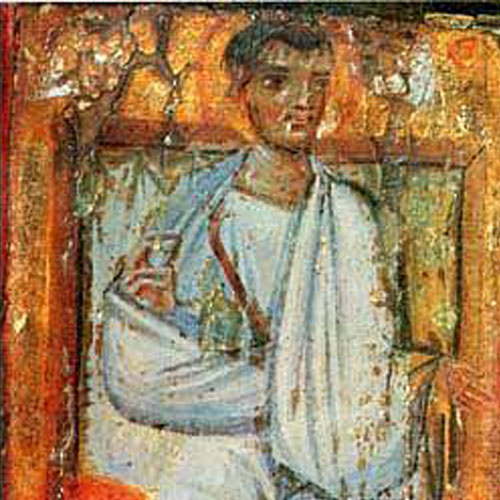
August 21 and January 4 (with the Seventy)
The writings of Eusebius, an early Christian historian in the fourth century, are the basis for the story of Saint Addai. His story is honored especially in the Christian East. According to tradition, Addai (or Thaddeus, as he is also known) was one of the seventy disciples of Jesus. Or, he may be identical with Thaddeus, one of the Twelve Apostles.
Legend has it that Saint Addai was ordered by Saint Thomas to go to the court of King Abgar the Black to heal the king of a serious illness. Another tradition tells us that Abgar, the king of Edessa in Syria, was stricken with an incurable sickness. Hearing of Jesus' power and healing miracles, King Abgar wrote to Jesus, imploring him to come and heal him. Jesus himself then sent his messenger Addai, gifted with his power, to heal the king. After Addai (Thaddeus) had healed King Abgar, Addai converted him and his people to the faith, including Saint Aggai and Saint Mari.
It is said that Addai also went to Beirut (in Lebanon) to found a church there. It was there that he died. The Syriac Liturgy today is also referred to as the Liturgy of Addai and Mari. It is used in the Assyrian Church of the East and the Chaldean Catholic Church, as well as the Chaldean Syrian Church and the Syro-Malabar Catholic Church in India, which was founded by Saint Thomas the Apostle.
(Image in public domain-70)